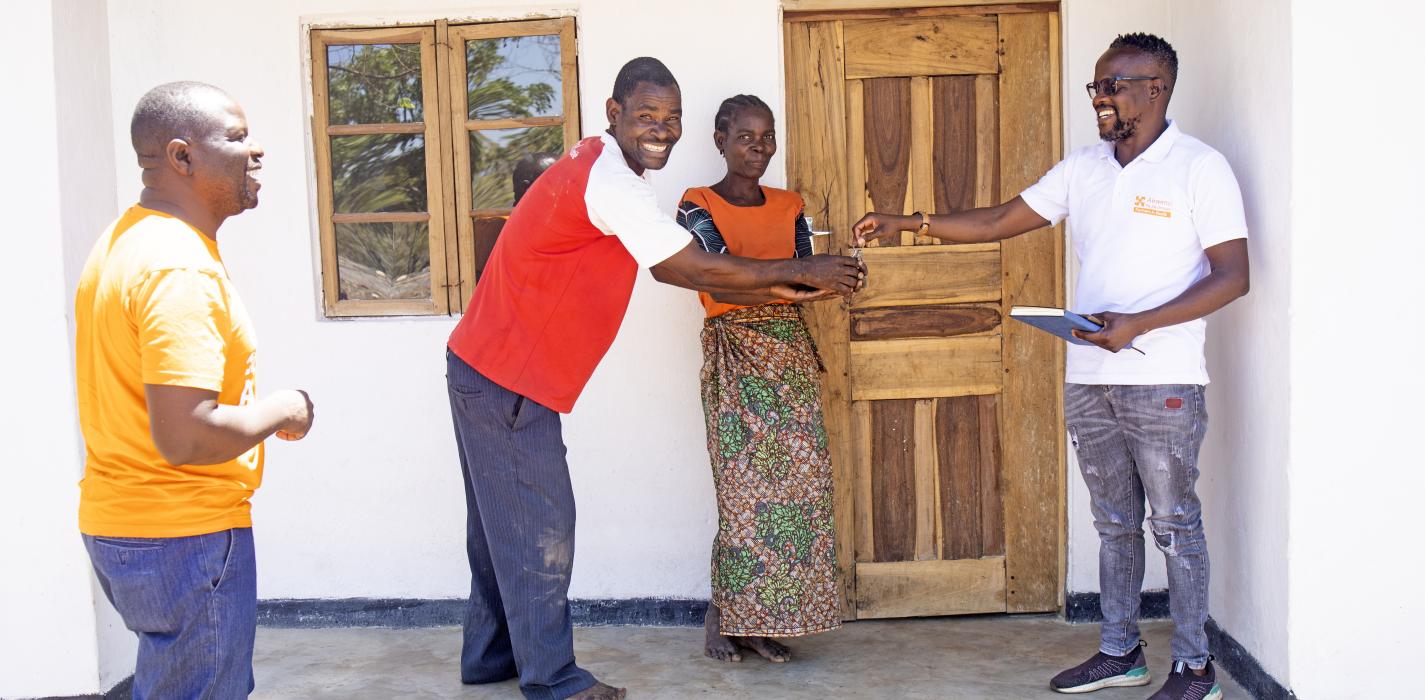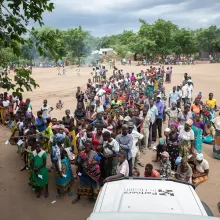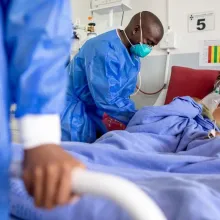Program on Social and Economic Rights (POSER)

The Program on Social and Economic Rights (POSER) is a cross-cutting program within Partners In Health (PIH) that aims to empower clients by addressing their social determinants of health (SDOH) and supporting them to live with greater dignity, security, and independence
Our Impact
The program helps to lift the financial burden of healthcare-related costs, ensuring that most vulnerable clients have access to medical care and the necessities they require to stay healthy.
In addition to that the program narrows down the gaps that accelerate inequality by providing interventions designed to improve the socio-economic status of the vulnerable communities found in the settings of poverty.
-
270Vocation training
270 youth trained in various vocational skills
-
5000Social cash transfer and patient transport support
More than 5000 vulnerable individuals are supported annually.
-
181Housing and renovation support
181 houses have been built to date for the most vulnerable communities in Neno.
The program on Social and Economic Rights (POSER) is a cross-cutting program within PIH that strives to address clients Social Determinants of Health (SDOH) by empowering them to live with dignity, security, and independence.
The program helps to lift the financial burden of healthcare-related costs, ensuring that most vulnerable clients have access to medical care and the necessities they require to stay healthy. In addition to that the program narrows down the gaps that accelerate inequality by providing interventions designed to improve the socio-economic status of the vulnerable communities found in the settings of poverty.
Since 2007, POSER has worked to interrupt the cycle of poverty and disease by addressing the social inequalities that put vulnerable clients at increased risk of illness. Collaborating with Monitoring and Evaluation of clinical and Community Programs at Partners In Health, the Ministry of Health, the Ministry of Education, Science and Technology, the Ministry of Gender, Community Development, and Social Welfare, the Ministry of Youth and Sports, the Ministry of Agriculture, Local Leaders, Local and International organizations, POSER runs programs that lower the economic barriers for accessing care for vulnerable individuals and families in Malawi.
Key Activities
Some of the key activities implemented under the program include:
1.) Home Visits
Initial assessment where clients’ needs are recorded in CommCare then follow-up visit (home visit) is done to have a better understanding of the client’s needs.
2.) School Support
The program aim is to break the cycle of poverty. Under the program, more than 174 students being supported at secondary and university levels, including 10primary school students with disability per academic year.
3.) Housing and Renovation Support
Through collaboration with the social welfare office assessment is done and housing support is provided to the most vulnerable in the community. More than 284 homes were made safe through home renovations as of FY22. 181 houses have been built to date for the most vulnerable communities.
4.) Social Cash Transfer and Patient Transport Support
The program helps ultra-poor families meet their basic needs and build resilience, with the ultimate goal of building human capital and moving them out of poverty
(Direct cash support, Monthly recurrent, Patient transport)
- More than 5000 vulnerable individuals are supported annually with cash to supplement food, transport fees, emergency support, small-scale businesses, and in-ward patient support.
5.) Vocation Training
Courses/Training that focus on skills transfer. PIH through POSER has been training people in vocational skills in Neno district. 270 youth trained in various vocational skills ((Tailoring, carpentry, bricklaying, motor vehicle and motorcycle mechanics, plumbing and basic
6.) Agriculture Support/Livelihood Programs
- Every year POSER supports vulnerable households within Neno, with farm inputs (fertilizer and improved seeds)
- 3699 female goats distributed to 1233 CHWs (68% females) between Oct 2019 and Sept 2023 under the Goat Seed Project funded by Primate’s World Relief and Development Fund (PWRDF).
- 6 vulnerable households (directly impacting 30 HH members) supported with 5 goats (4 female, 1 male) through the POSER program
7.) Emergency Responses
- Rebuild Kaingilira Community with 18 model houses, toilets & community shelter after fire accident.
- 2019: Responded to Cyclone Idai by constructing 23 houses & toilets, and at least impacted 7500 people with food and other social support packages.
- 2020-2021: At least 2500 individual HHs affected by COVID-19 supported through social packages in the Neno district.
- 2022: Cyclone Ana Response in Neno and Chikwawa districts, impacting 3,982> HHs.(Pop 18,000>)
- 2023: Cyclone Freddy Response in Neno and Chikwawa impacting 1,154HHs (Pop 11,376>): Also responded by constructing 11 low-cost houses for Community Health Workers and Community members.

